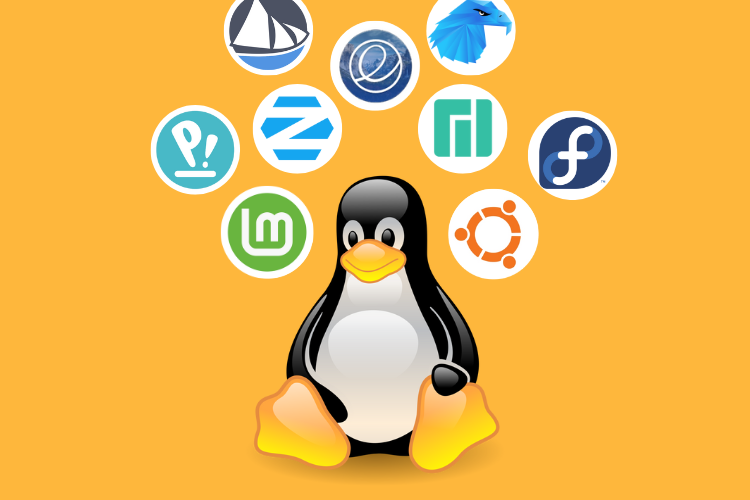Linux is a powerful, open-source operating system that has gained significant popularity among developers, system administrators, and tech enthusiasts. It is known for its robustness, security, and flexibility, making it a preferred choice for various applications, from server management to software development.
Why Use Linux?
1. Open Source and Free
One of the primary advantages of Linux is that it is open-source, meaning the source code is freely available for anyone to inspect, modify, and enhance. This transparency fosters innovation and collaboration within the developer community. Additionally, most Linux distributions are free to download and use, reducing software costs significantly.
2. Stability and Reliability
Linux is renowned for its stability and reliability. It can run for years without needing a reboot, making it ideal for servers and critical applications. This stability ensures minimal downtime and consistent performance, which is crucial for both development and production environments.
3. Security
Linux has a strong security model, with features like user permissions, encryption, and a robust firewall. Its open-source nature allows vulnerabilities to be quickly identified and patched by the community. For developers, this means a more secure environment for developing and deploying applications.
4. Performance
Linux is known for its efficient use of system resources. It can run on a wide range of hardware, from low-end machines to high-performance servers, providing a smooth and responsive experience. This efficiency makes Linux an excellent choice for development, where resource management is critical.
5. Customization and Flexibility
Linux offers unparalleled customization options. Developers can tailor the operating system to their specific needs, from the kernel level to the user interface. This flexibility allows for the creation of highly optimized environments tailored to particular development workflows.
Benefits for Developers
1. Development Tools
Linux provides a rich set of development tools out of the box, including compilers, interpreters, and debuggers. Popular programming languages like Python, C, C++, Java, and Ruby are well-supported. Additionally, package managers like APT and YUM make it easy to install and manage software dependencies.
2. Command Line Interface (CLI)
The Linux command line is a powerful tool that allows developers to automate tasks, manage files, and configure systems efficiently. Shell scripting enables the automation of repetitive tasks, enhancing productivity and reducing errors.
3. Version Control
Linux integrates seamlessly with version control systems like Git, which is essential for modern software development. Developers can easily manage code repositories, track changes, and collaborate with others, streamlining the development process.
4. Development Environments
Linux supports various integrated development environments (IDEs) and text editors, such as Visual Studio Code, Vim, and Emacs. These tools provide features like syntax highlighting, code completion, and debugging, enhancing the coding experience.
5. Virtualization and Containerization
Linux is the backbone of many virtualization and containerization technologies, such as Docker and Kubernetes. These tools allow developers to create isolated environments for testing and deployment, ensuring consistency across different stages of the development lifecycle.
Types of Linux Distributions
Linux distributions (distros) are different versions of the operating system, each tailored for specific use cases. Here are some popular ones:
1. Ubuntu
Ubuntu is one of the most popular and user-friendly distributions. It is ideal for beginners and offers a wide range of software packages, making it suitable for both desktop and server use.
2. Fedora
Fedora is known for its cutting-edge features and rapid release cycle. It is an excellent choice for developers who want to work with the latest technologies and software versions.
3. Debian
Debian is a stable and reliable distribution, known for its extensive package repository. It is a preferred choice for servers and systems requiring high stability and long-term support.
4. CentOS
CentOS is a community-driven distribution based on Red Hat Enterprise Linux (RHEL). It is widely used in enterprise environments due to its stability and support for enterprise-grade applications.
5. Arch Linux
Arch Linux is a lightweight and highly customizable distribution. It follows a rolling release model, providing the latest software updates. It is suitable for advanced users who want complete control over their system.
Essential Linux Commands
Here are some essential Linux commands every developer should know:
1. Navigating the Filesystem
ls: List directory contentscd: Change directorypwd: Print working directory
2. File Operations
cp: Copy files or directoriesmv: Move or rename files or directoriesrm: Remove files or directoriesmkdir: Create a new directory
3. File Permissions
chmod: Change file permissionschown: Change file owner and group
4. System Monitoring
top: Display running processeshtop: Interactive process viewerdf: Report filesystem disk space usagedu: Estimate file space usage
5. Networking
ping: Test network connectivityifconfig: Configure network interfacescurl: Transfer data from or to a server
6. Package Management
apt-get(Debian/Ubuntu): Install, update, and remove packagesyum(CentOS/Fedora): Install, update, and remove packagespacman(Arch): Package manager utility

